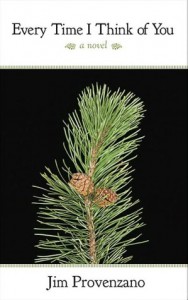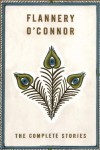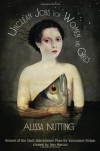Skinny Dipping Into Books
I like the rain. I want to have a spring bookworming rain party full out with wellies—but not those Hunter Boots; absolutely not—, with yummy airy things like puffed pastries, meringues, mini fluffy cheese cakes, mousse dessert, macaroon, biscuits, crepe, and Earl Grey tea, definitely Earl Grey tea. and Tillandsia. We'd have lots of "air plants". Lots! And We'd read, but not anything structured. We'd bring books, trade books, read out-loud, pass books around between sentences and paragraphs. We'd leave with books we hadn't discovered.
I like books like I like my Jazz; euphoric, dangerous, occasionally a bit manic, sorrowful, bleak, raging, mood-incongruent, mournful, unforgivingly ragged, symbolic in a quiet way, warm apple pie for the soul. Give me a Plath style. Yōko Ogawa, M. Roach,
Criteria: Not rated on likability of characters. Not objective. I like Moxie Soda; chances are you don't.
time spent in that before bed reading slot:
5-until blurry eye 4-Later than I intended, but I still kept to my extended, extended reading time 3-I really should have been to bed an hour ago 2-customary 30 minutes. 1-book. side table. eyes closed.
How are common themes handled?
5-With an aesthetic that repurposes everyday themes into something fresh. Think of Hole Celebrity Skin covered by Cat Power 4-there is a comfortable air of familiarly.
3-Deja Vu 2. No deviation from its mates 1. Devastatingly trite, redundant, and stale.
Where would you keep it post-reading?
5-Next to my bed. 4-it's the center piece of my favorite bookshelf 3. On my other favorite bookshelf, but it's a bit dusty over their 2-Great cheap bookends 1-It never made it out of the box marked 'moving'.
Emotional response-
5- Where is my teddy bear? Emotional-hangover 4- If I wasn't so emotionally stunted I'd cry.
3. Did James Cameron co-wrote this? Artfully contrived.
2- calculative emotional manipulation. This was literally written by James Cameron.1- I…feel…..nothing.
Mechanics (plot structure, voice, presentation, word choice, sentence structure, characters, writing style, pacing, and consistency):
5-Chanel 4-Prada 3-J-Crew 2-Gap 1-Old Navy
I spent how many hours on THAT!?

2.5
Bathed in contrivances, an awkward, obsessive focus on sexual activity and written in a forced and belabored style, Every Time I Think of You tells the story of Everett and Reid. These two star-struck lovers meet in one of the most absurd book introductions in history. Reid, succumbed to teenage hormones, escapes to his favorite masturbation vacation spot; the woods. Of course he stumbles across someone who is masturbating at the same exact time at the same exact place. It’s winter. There is snow. This pretty much establishes the lengths to which this novel is devoid of reality.
Reid and Everett are from different socio-economic backgrounds. Reid the poor-isher, and Everett the privileged one. Of course with the variations in social makeup comes with the obligatory liberal, easy going, accepting family and the republican, hard-arsed, critical family. The classic characterizations of these two groups, and the clash between the two is presented as expected.
Reid and Everett’s budding relationship, cemented in the flexing of their right hands, travels the typical trajectory of a love story, that is it starts off good, and to be jaded and cynical we have to endure some sort of devastation. Reid musters up his one-dimensional whining personality and becomes overly reliant on Everett. Everett confidence and his rebellious attitude doesn’t jive well for the inexperienced Reid, and rather than grow within the love, they both remain stagnant…. for about 100 pages. It is very cute, fluffy, warm, and all cookies and milk, but barely much else.
The pages turn and Everett continues to roll on with a seductive dance with his own dares—because we haven’t read the young, white son rebelling against his rich family… like ever—and Reid whines about the sand papery relationship. What results, at least on Reid’s end is this ‘he loves me he loves me not flower peddle pulling’ repetitive inner-dialog. Without his own construct of love, Reid struggles with understanding Everett’s need for lets say, just for example, blowjobs on a golf course. He of course never questions the fact that he and Everett first met when he stumbled across him ‘walking the dog’ in the middle of snowy forestness. There is intimacy here, but it’s poorly developed and lacks depth.
Boom… shocking plot device… The already labored, but reasonably comfortable relationship must have its misery. No love is safe. Everett has an accident and Reid is forced to navigate his own hesitations, anger, sense of loss, sadness, and also Everett’s loss of personal integrity and personhood. Rather than explore this delicate and difficult terrain, we are assaulted by a precarious combination of libido, family dynamics, friendship, betrayal condoned by he who is betrayed, and depression. Nothing is really developed thoroughly, other than the reoccurring theme of sex. This isn’t to say that the remainder of the book focused exclusively on sex, but the ratio was a bit lopsided towards ‘can we still have sex and how has this changed’. The over-arching theme here, as with the rest of the book, is a study on how sex can clot a hemorrhaging relationship. Even when apart, and communicating through letters—which, seriously goes on for ever and ever and I screamed at the thought of having to read more of Reid’s whiny little attempts to sustain the relationship. Pulling at straws—, every other piece of correspondence referenced something sexual.
We encounter a simplistic, vague, and otherwise vapid overhaul of a relationship torn asunder by an unusual, and downright ugly life event. The knitting of two lives, the before the accident and after, failed to solidify into anything other than something superficial and grossly overrated. The plot focused seldom on the contrast of the before and after, and the loss of abandoning the relationship or pulling forward, and more on the language of physical touch between ‘able-bodied’ and ‘non-abled bodied’ people. There were scant periods of introspection, personal strife, observations on resiliency, and only a few squints at empathy. The problem here is that the relationship between Everett and Reid was ill conceived from the onset, so when things broke away from sexual rendezvouses, and rough explorations into family, self, and the essentials of love, it was a little difficult to truly immerse myself in the notion of ‘we love one another beyond thrashes between the sheets’.
The travesty is that this book escaped the really gritty shit of disabilities and the way sudden life changes annihilate lives. Every Time I Think of You did venture into a unique and novel territory, but it did so with poor execution and a writing style that was perfectly suited as a replacement for sleeping pills.
Unfortunately, there exists only a minimal amount of offerings from this sub-genre of gay lit, thus increasing the competition. The novel Two Boys Kissing, with its keen observation on gender issues and suicide, and The Hours with its raw examination of HIV and suicide, dwarf Every Time I Think of You under their much larger, impressive shadows.
And my rant….
Gay themed health related literature is a slender departure from those offered by the larger gay genre. This leaves a wide landscape of creativity and ingenuity, and permits a space to explore territory beyond the sadness, jealousy, and fractured relationships that typifies and stains the larger gay romance genre. Why then do we find the same dreaded over sexualized, emotionally strained relationships observed in this book? The status quo, even with the novelty of the dynamics between able bodied and non-abled bodied, is becoming excessively redundant.
So… stop that.
Visual representation is…
 2
2





